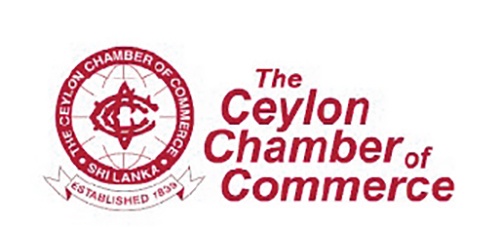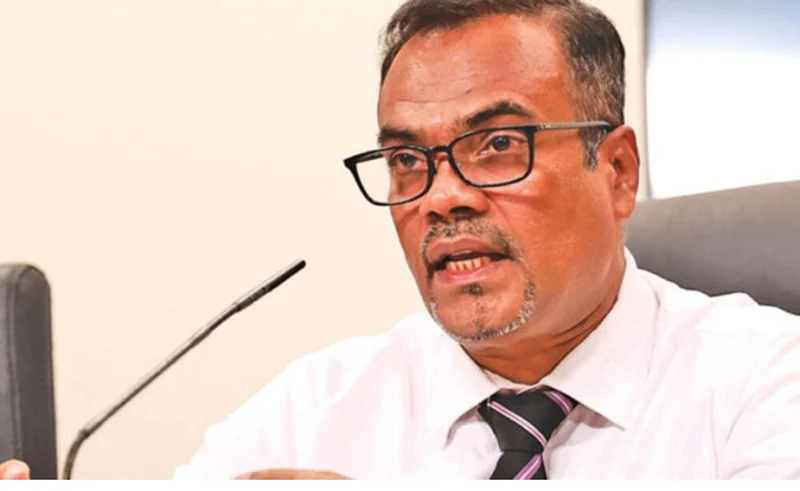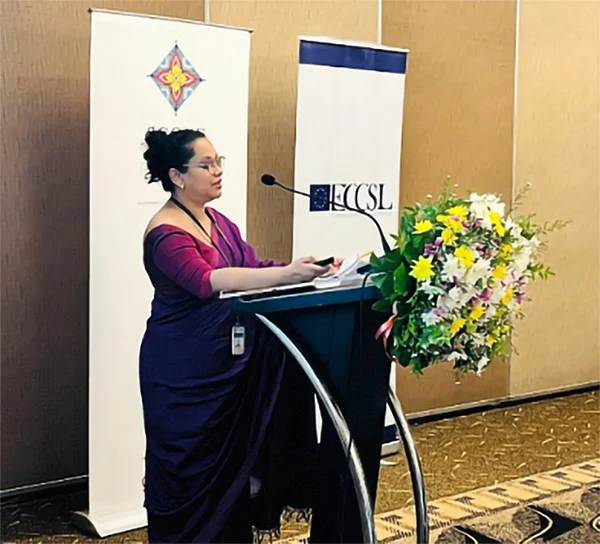Business
Ceylon Chamber welcomes growth-oriented budget 2021

The Ceylon Chamber of Commerce welcomes the proposals put forward by the Prime Minister in the national budget 2021 which are business friendly, production oriented and demonstrative of policy continuity. The budget has focused on boosting economic growth by enhancing exports, providing investment relief for key thrust sectors supplemented by public investment proposals, promoting capital markets and supporting the growth of Startups and SMEs.
The emphasis on tax policy continuity and measures announced to strengthen tax administration demonstrates a strong commitment to policy consistency while strengthening and broad basing revenues. The Chamber in its pre-budget proposals highlighted the importance of the government maintaining the current tax laws and rates at least for the next five years or so thereby providing the necessary consistency in tax policy. The adoption of a consistent tax policy under national budget 2021 would not only provide a platform for proper planning for business but would also help the government in long term cash flow planning and strengthening fiscal consolidation.
The Chamber also welcomes the tax relief for investment in machinery and equipment for domestic manufacturing and exports and the relaxing of import restrictions on certain sectors in line with past recommendations by the Chamber. Proposals on enhancing digital governance, investments in technology and infrastructure including rural connectivity to facilitate digital inclusion are also notable.
We trust the commendable proposals in the budget will see timely implementation and will continue to involve private sector consultation. The Chamber looks forward to the facilitation of further stakeholder engagement with respect to holistic labor reform and the placement of the proposals related to the extension of the retirement age and the contribution of 0.25% on turnover towards an insurance fund, within the context of the said broader reform agenda. With respect to wage reform, the Chamber recommends that reliance continues to be placed on the time-tested mechanism of collective bargaining which has so far been adopted consistently across industry sectors and encompasses factors related to productivity and worker welfare, and as such that the government reconsiders the budget based wage intervention for the plantation sector. The incorporation of productivity linkages within the proposal to increase wages of plantation sector workers is also a subject which merits further consultation.
The Chamber trusts that the positive benefits accrued from the macro stability set out by national budget 2021 will provide a foundation for sustainable growth acceleration over the medium and long-term as envisaged. The Chamber is also hopeful that the government will pivot on the growth foundation established, to continue its progress in reforms on several key agendas including but not limited to those related to local and foreign investment, debt management, export promotion, state-owned enterprises (SOEs), capital market and productivity enhancements in the public sector.
The Ceylon Chamber in its capacity as the premier representative of the private sector, looks forward to an ongoing engagement with the government, and for the opportunity to play a meaningful role alongside the private sector at large, with respect to the implementation of the budget proposals. The Chamber will continue to support the Government’s initiative to effectively execute a public-private shared vision for accelerated economic revival and social sustenance.
Business
President AKD writes to President Trump over trade deficit concerns

In a bid to address mounting trade tensions, the Sri Lankan government has intensified efforts to reduce its significant trade deficit with the United States, Deputy Minister of Economic Development Dr. Anil Jayantha Fernando announced in parliament yesterday. He added that President Anura Kumara Dissanayake has despatched a formal letter to President Trump urging, among other things, a re-assessment of the recent enhanced tariff regime imposed on Sri Lanka.
The move follows reciprocal tariffs imposed by U.S. President Donald Trump, which Sri Lankan authorities say significantly affect key export sectors. The Deputy Minister indicated that the White House has acknowledged receipt of the Lankan President’s letter, signaling the launching of a potential bilateral dialogue.
Responding to a question raised by New Democratic Front (NDF) MP Ravi Karunanayake, Deputy Minister Fernando revealed that 88% of Sri Lanka’s trade deficit over the past five years stemmed from U.S. trade relations with apparel, rubber products, spices, other agricultural products and precious gems constituting 85% of total exports to the U.S. These exports, he noted, already face tariffs and paratariffs, but President Trump’s recent levies were calculated based on bilateral trade imbalances – a factor that has placed Sri Lanka’s economy under heightened pressure.
“The President’s intervention underscores our commitment to protecting Sri Lankan industries and fostering equitable trade terms, Fernando stated, defending the administration’s proactive and reactive measures to mitigate the US tariffs’ impact on local businesses.
Highlighting ongoing engagement, he added that another round of high-level discussions with the Office of the U.S. Trade Representative (USTR) was scheduled overnight. These talks aim to address structural trade imbalances and explore avenues for tariff relief, particularly for Sri Lanka’s apparel sector, which employs millions nationwide.
The President’s letter marks a strategic move in Sri Lanka’s diplomatic outreach, reflecting the government’s urgency to stabilise an economy still recovering from recent crises while in the middle of an IMF programme.
Sri Lankan industry leaders have cautiously welcomed the government’s efforts but emphasise the need for swift, tangible outcomes.
At present, all eyes remain on Washington’s response to President Dissanayake’s appeal – a potential turning point for Sri Lanka’s trade future, observers noted.
By Sanath Nanayakkare
Business
Inclusive and sustainable apparel for SDGs

The European Chamber of Commerce of Sri Lanka (ECCSL), in collaboration with the Strengthening Social Cohesion and Peace in Sri Lanka (SCOPE) programme, recently hosted its third industry-focused event, bringing together apparel-sector stakeholders to exchange experiences and practical insights on embedding inclusivity and sustainability into business operations.
Building on the success of ECCSL’s earlier events focused on tourism and food and agriculture, this apparel-focused gathering convened government representatives, industry leaders, business practitioners and the academia to discuss practical strategies for embedding inclusivity and sustainability into business operations.
While many businesses already recognize the importance of these principles, the event emphasized practical implementation, shifting the conversation from the “why” to the “how” of inclusive and sustainable practices.
Chamindry Saparamadu, Director General of the Sustainable Development Council of Sri Lanka, discussed how the Government of Sri Lanka is supporting businesses to create social and environmental impact through its Inclusive and Sustainable Business (ISB) Strategy. Ms. Saparamadu outlined how this strategy aims to create a resilient, equitable, and sustainable economy by building an ecosystem in which inclusive and sustainable businesses can thrive, driving transformative change across industries.
The event also featured engaging presentations from leading apparel businesses—Omega Line, Hirdaramani, and Compreli Consulting—each showcasing real-world examples of how inclusivity and sustainability can be embedded into business operations.
Omega Line, represented by Saman Jayasinghe (Chief HR Officer, Group – Administration) and Charman Dep (Assistant General Manager – Production Planning), presented its multifaceted sustainability approach, spotlighting its Vavuniya factory as a successful model for combining environmental stewardship with social impact.
Hirdaramani’s Manindri Bandaranayake (Chief Brand & Sustainability Officer for Sri Lanka, Bangladesh, Ethiopia, and Vietnam) showcased the company’s holistic sustainability framework, including its Wonders of Wellbeing (WOW) program, policies supporting differently-abled individuals, and deep community engagement.
Finally, Compreli Consulting co-founders Ramesh De Silva and Shehan Olegasageram showcased their innovative garment repair-as-a-service model—a circular, scalable solution that reduces waste and carbon emissions, while aligning with evolving global sustainability regulations.
Participants then had the opportunity to share their own knowledge in a group discussion, exchanging experiences and reflecting on the challenges and opportunities encountered in their sustainability journeys.
The event underscored the collective benefit of building Sri Lanka’s reputation as a global leader in inclusive and sustainable business. By fostering collaboration between businesses, the academic community and government stakeholders, the session aimed to accelerate broader industry adoption of these principles and contribute to Sri Lanka’s sustainable economic growth.
The discussions were facilitated by the Project Lead of ECCSL’s Inclusive Business Practices project, William Baxter.
Business
Union Assurance records Rs. 5.2 Billion PBT, fortifying its financial position by delivering best-in-class value

Union Assurance PLC, Sri Lanka’s longest-standing private Life Insurer, has recorded a strong financial performance with growth across key metrics for the year ending December 31, 2024. The Company achieved a 15% growth in gross written premium, totalling Rs. 21.6 billion driven by double-digit growth in both regular new business premiums and renewal premiums and paid Rs. 7.7 billion worth of claims and benefits to its customers during the year. In addition, for the year ending December 2024, the Company also declared an industry-leading universal life policyholder dividend rate of 12%, underscoring its continued commitment to deliver exceptional value to its customers.
Net investment income recorded a 9% year-on-year growth to reach Rs. 11.8 billion aided by an effective asset allocation strategy. The gains from the trading investment portfolio increased by 123% to reach Rs. 2.9 billion driven by the strong performance of the Colombo Stock Exchange during the latter part of the year.
Union Assurance distributed Rs. 3 billion as surplus from the policyholder fund and reported a profit after tax of Rs. 3.7 billion for 2024. The Company declared a final shareholder dividend of Rs. 5.00 per share amounting to a total payout of Rs. 2.9 billion.
A key milestone for Union Assurance in 2024 was the surpassing of Rs. 100 billion in total assets for the first time in its history, ending the year with Rs. 109.5 billion. This underscores the Company’s solid financial foundation and growth trajectory.
The Company’s assets under management grew by 15% during the year, reaching Rs. 95.6 billion driven by market valuation gains and cash generation from business operations. Furthermore, Union Assurance’s capital adequacy ratio stood at a healthy 264% at the end of 2024, well above the regulatory minimum of 120%.
-

 Business2 days ago
Business2 days agoColombo Coffee wins coveted management awards
-

 Business4 days ago
Business4 days agoDaraz Sri Lanka ushers in the New Year with 4.4 Avurudu Wasi Pro Max – Sri Lanka’s biggest online Avurudu sale
-

 Features3 days ago
Features3 days agoStarlink in the Global South
-

 Business5 days ago
Business5 days agoStrengthening SDG integration into provincial planning and development process
-

 Business4 days ago
Business4 days agoNew SL Sovereign Bonds win foreign investor confidence
-

 Sports6 days ago
Sports6 days agoTo play or not to play is Richmond’s decision
-

 Features3 days ago
Features3 days agoModi’s Sri Lanka Sojourn
-

 Sports5 days ago
Sports5 days agoNew Zealand under 85kg rugby team set for historic tour of Sri Lanka




















